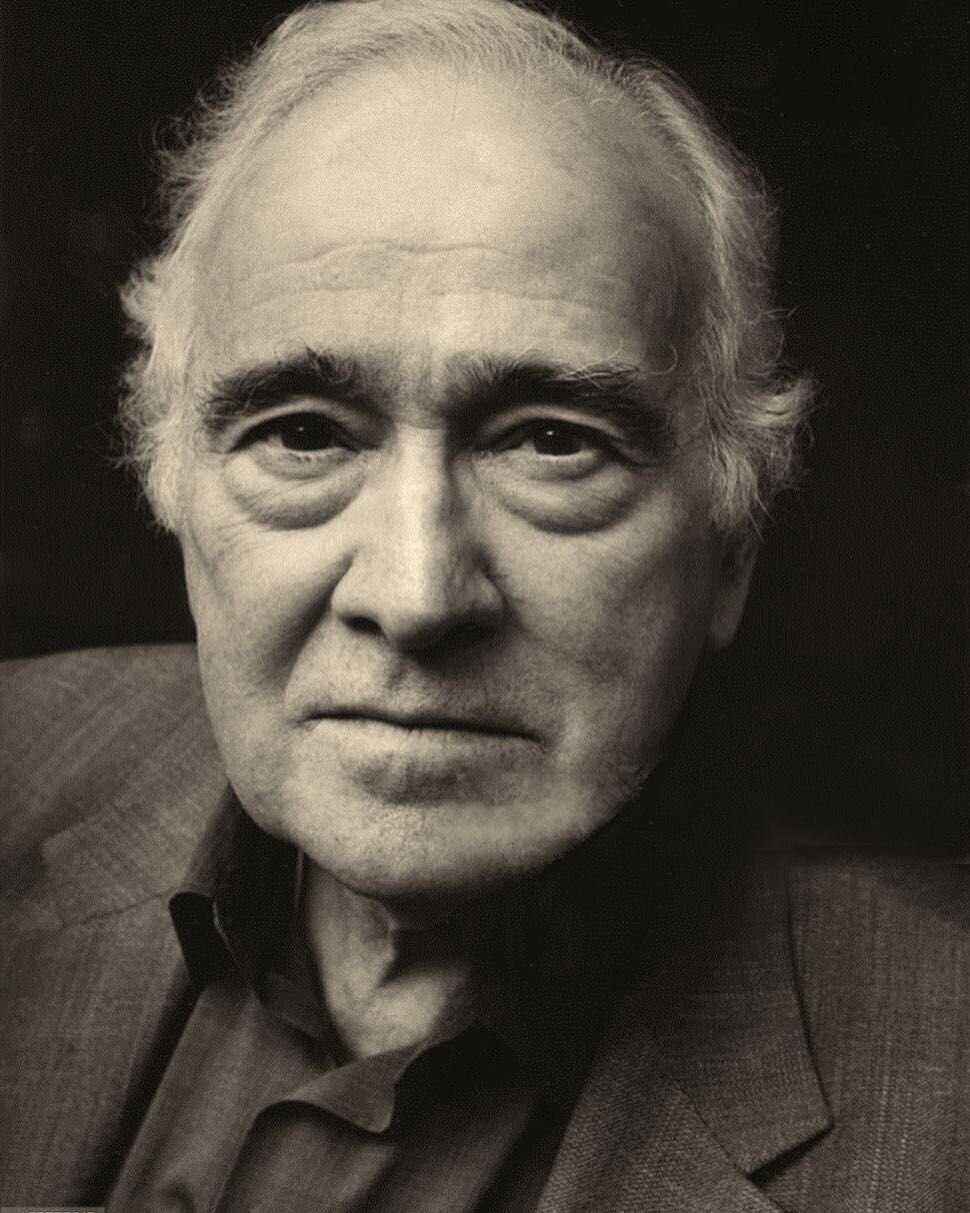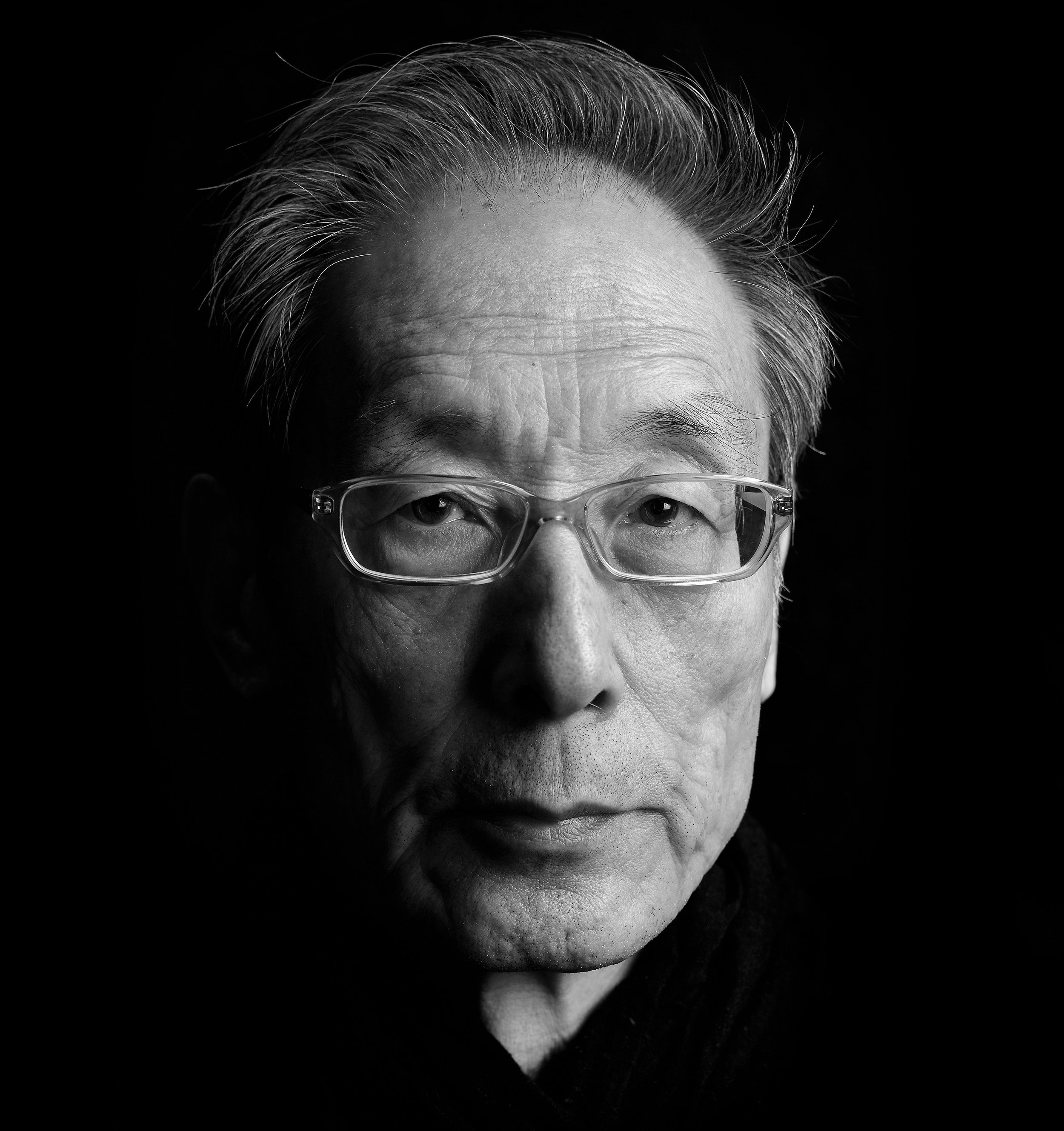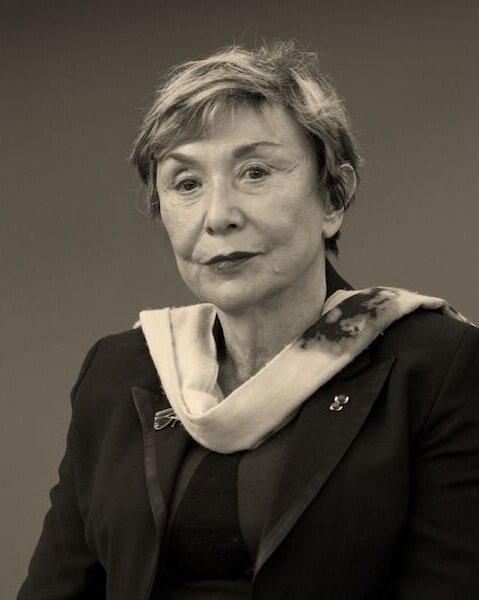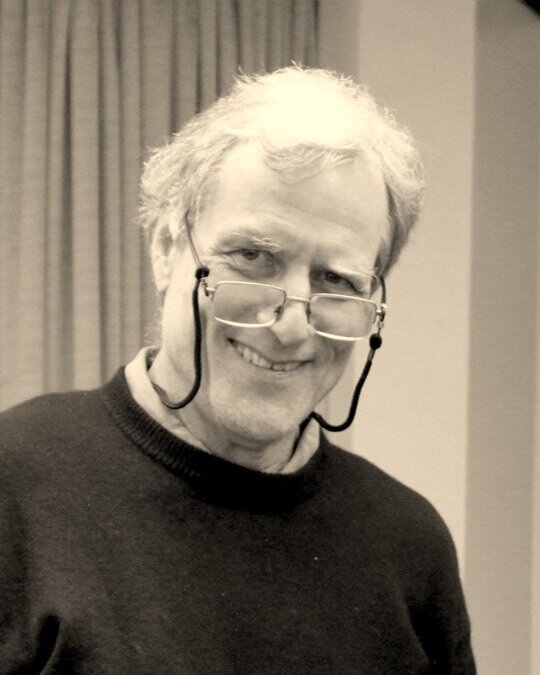AWAKENING ESSAYS
Jürgen Habermas (Born 1929) took over Max Horkheimer’s chair in philosophy and sociology at the Goethe University Frankfurt’s Institute of Social Research under the recommendation of Theodor Adorno in 1964, eventually becoming director of the Institute. Considered the leading figure of the second generation of the Frankfurt School, Habermas has also held positions at the University of Heidelberg and the Max Planck Institute for the Study of the Scientific-Technical World. His works include The Structural Transformation of the Public Sphere (1962), The Theory of Communicative Action (1981), The Philosophical Discourse of Modernity (1985), and Between Facts and Norms (1992), and his many honors include the Theodor W. Adorno Award (1980), the Sonning Prize (1987), and the Kyoto Prize in Arts and Philosophy (2004).
"Modernity-An Incomplete Project"
In 1980, architects were admitted to the Biennial in Venice, following painters and filmmakers. The note sounded at this first Architecture Biennial was one of disappointment. I would describe it by saying that those who exhibited in Venice formed an avant-garde of reversed fronts. I mean that they sacrificed the tradition of modernity in order to make room for a new historicism.
Donald Kuspit (Born 1935) is Distinguished Professor Emeritus of Art History and Philosophy at SUNY Stony Brook and former A.D. White Professor-at-Large at Cornell University. He is the author of New Old Masters (2007), The End of Art (2004), Psychostrategies of Avant-Garde Art (2000), and The Cult of the Avant- Garde Artist (1992). Among his many monographs are studies devoted to single artists including Marcus Reichert (2015), Mia Brownell (2010), and Chihuly (1997), as well as collections of his own poetry including Disillusion (2018).
"Fiction and Phenomenology"
Little has been said about the special significance of fancy in Husserl's philosophy. Insofar as philosophy shows its power primarily in the making of distinctions, and secondarily in the derivation of a science which takes these distinctions as axiomatic, the means Husserl uses to make the distinction most central to his science of phenomenology has been ignored. It is in some casual remarks about fancy - remarks not following from any ruling stipulations - that Husserl demonstrates.
水天中 born in Lanzhou, Gansu Province in 1935, eminent art theorist, art historian, and artist, Shui Tianzhong is a distinguished researcher in the China National Academy of Arts, visiting professor at the Central Academy of Fine Arts, the Academy of Fine Arts of Tsinghua University, Xi’an Academy of Fine Arts, and the Academy of Fine Arts of Shanghai University. In addition to serving as the Executive Director of the China Oil Painting Society, and as the Vice President of the China National Academy of Visual Art Theory Research Institute, he holds fellowships with the National Cultural Relics Appraisal Committee and is an honored Fellow of “Experts with Outstanding Contributions" from the State Council of China.
Professor Shui has received numerous accolades including the 9th “Artistic Achievement Award for Plastic Performing Artists” awarded by the China Federation of Literary and Art Circles, 2010; the “ACC Art China Annual Influential Lifetime Achievement Award,” 2011, and the “Art History Research Award” from the Wu Zuoren Foundation. He served as director of the Fine Arts Department in the Graduate Department of the China National Academy of Arts, and was director of the Fine Arts Research Institute. In addition to acting as the editor-in-chief of the quarterly magazines China Art News and Art History, he was part of the first senior professional title (art theory series) review committee from the Ministry of Culture in China and deputy director of the Art Theory Committee of the Artists Association.
Professor Shui graduated from the Northwest Academy of Arts, Fine Arts Department, in 1955, and graduated from the China National Academy of Arts, Graduate Department, in 1981. He is the author of numerous essays and books:
The History of Chinese Art in the 20th Century (Oil Painting Volume), 2020
Chronicle of Chinese Art in the 20th Century, 2012
Chinese Modern Art Theory (Shui Tianzhong Volume II), 2011
60 Years of Chinese Art (Associate Editor), 2009
The Complete Works of Wu Guanzhong, 2007
Encyclopedia of Chinese Art (Painting Volume), 2004
History, Art, and People, 2001
Anthology of Chinese Art in the 20th Century, 2000
Chinese Oil Painting in the 20th Century (Volume 1), 1999
Through the Four Seasons, 1997
Traces of Famous Chinese Painters in the 20th Century, 1993
Chinese Modern Art Review Series, 1990
李公麟和他的时代
北宋中期,道学 (即理学) 作为王安石新学的一个对立面出现了。它对中国思想、文化产生了十分深远的影响。有的人把它与宋代美术联系起来,把宋代绘画看作是理学思想在美术领域的产物。这实在是一种误解,道学思想虽出现于北宋,而当时尚处于酝酿阶段。它在思想界居于统治地位,是在北宋灭亡后一百年的南宋后期。北宋不是一个道学时代,那种动辄得咎的道学生活并不是北宋文人所过的生活。北宋知识分子的思想是比较活跃的,他们敢于提出与前人不同的观点,开拓古人未曾涉足的学术领城,出现了许多博览群书而各有己见,不为苟同的学者。这种思想和学术上的活跃,当然与社会经济的发展,市民阶层的壮大和封建社会各种矛盾的进一步尖說、复杂化分不开。值得注意的是,这个时代产生了一批类似西欧文艺复兴时期那种具备多方面才能,涉足人类文化各个领域的天才人物。
范炳煇:我的老师水天中:八十年代轶事 by Fuoco B. Fann
1984年3月底,福柯在巴黎法兰西公学院做完讲座《真话的勇气》最后一节,对听众说,“我还有话要说,但为时已晚”,三个月后去世。读福柯书的人都知道,他认为 “现代性” 使人变成了一个知识超载 “主体”。这个主体既自相矛盾又自以为是,希望以有限的主体超越无限的客体,而凌驾于客体之上,生造了一个 “双重我”,“我” 切断了与我同时存在事物的一切源头。我与 “我” 既不能调合又不可却少,陷入无法解脱的困境之中。这个矛盾表现为现代人的 “求知意志”,意欲追求无限知识,但越来越多的知识,却超越了人可负荷的限度,知识成了禁锢人的枷锁
Julia Kristeva (Born 1941) is Professor Emeritus of the Université Paris 7—Denis Diderot. Formerly a member of the group of French intellectuals associated with the journal Tel Quel that included Roland Barthes (her mentor) as well as Jacques Derrida, Michel Foucault, and Maurice Blanchot, Kristeva is a practicing psychoanalyst whose publications concern linguistics, literary theory, and feminism. Her works include Desire in Language: A Semiotic Approach to Literature and Art (1969), Revolution in Poetic Language (1974), About Chinese Women (1977), and Crisis of the European Subject (2000). A Commandeur of the French National Order of Merit and Commandeur of the Legion of Honor, Kristeva received the Hannah Arendt Prize in 2006.
"Semiotics: A Critical Science and/or a Critique of Science"
In a decisive move towards self-analysis, (scientific) discourse today has begun to re-examine languages in order to isolate their (its) models or patterns. In other words, since social practice (the economy, mores,'art', etc.) is envisaged as a signifying system that is 'structured like a language', any practice can be scientifically studied as a secondary model in relation to natural language, modelled on this language and in turn becoming a model or pattern for it. It is in this precise area that semiotics today is articulated or rather is searching for its identity.
James Clifford (Born 1945) is Distinguished Professor in the Humanities and Emeritus Professor in the History of Consciousness Department at the University of California, Santa Cruz. He was a founding director of the UCSC Center for Cultural Studies and has held visiting professorships at Stanford University, the Freie Universität Berlin, the École des Hautes Études en Sciences Sociales (Paris), and University College London. A former Guggenheim fellow, Clifford was elected to the American Academy of Arts and Sciences in 2011. His work combines perspectives from anthropology, indigenous studies, the history of science, and literature. A co-editor of and contributor to the influential essay collection Writing Culture: the Poetics and Politics of Ethnography (1986), Clifford is also the author of The Predicament of Culture: Twentieth-Century Ethnography, Literature, and Art (1988), Routes: Travel and Translation in the Late 20th Century (1997), and Returns: Becoming Indigenous in the Twenty First Century (2013).
"On Ethnographic Surrealism"
Andre Breton often insisted that surrealism was not a body of doctrines, or a definable idea, but an activity. The present essay is an exploration of ethnographic activity, set, as it must always be, in specific cultural and historical circumstances. I will be concentrating on ethnography and surrealism in France between the two world wars. To discuss these activities together-at times, indeed, to permit them to merge-is to question a number of common distinctions and unities.
"Rearticulating Anthropology"
In The Order of Things, Michel Foucault argues that the modern disci- plines, including anthropology, took shape during the nineteenth century in a discursive context where the figure of "man" had emerged as a complex subject and object of knowledge, simultaneously transcendent and empirical. I take this moment as a rough starting point for a discussion of how sociocultural anthropology makes and remakes itself in changing intellectual and institutional contexts. I write at a time of serious disagreement about whether we are at the end of the episteme Foucault identified-a set of assumptions under which "cultural" and ''social" diversity across time and space can be construed as a describable and theorizable "human" inheritance.
John Lagerwey (Born 1946) is a research professor at the Centre for China Studies at The Chinese University of Hong Kong and is a Director of Studies of Religious Sciences at the École Pratique des Hautes Études. He is the author of Paradigm Shifts in Early and Modern Chinese Religion (2018), China: A Religious State (2010), and Taoist Ritual in Chinese Society and History (1987), among many other publications in journals such as the Journal of Chinese Ritual, Theatre and Folklore, the Bulletin de l’École française d’Extrême-Orient, and Cahiers d’Extrême-Asie.
"The Oral and the Written in Chinese and Western Religion"
The question of the nature of language has always been a central one in philosophy, but rarely has it received as much attention as in this century: is language the exclusive preserve of human beings? does talk about God make sense? is it possible to eliminate the verb "to be" when translating propositions by means of symbolic logic? do words refer to things, or is that which is signified by a word itself already a sign?
"Taoist Ritual Space and Dynastic Legitimacy"
The most common word for the Taoist sacred space is tan, a word which refers to a "platform of tamped earth." In traditional China most if not all Taoist abbeys had a permanent sacred space where Taoist masters performed their rituals both for themselves and for the faithful who requested such services. Hereditary Taoists also had a permanent tan in their homes, and they there burned incense morning and evening and also received their clientèle for minor rituals.
God the Father; Dao the Mother: Western and Chinese Dualisms
John Lagerwey, translated by Edmund Mendelssohn
This essay is composed of three parts corresponding to three theses: (1) dualism is at once universal and particular (cultural); (2) the opposition of God the Father and Dao the Mother best sums up the differences between Western and Chinese dualisms; and (3) History may be understood as an ongoing patriarchal rationalization whose contours are determined by the particular “bent” of a given culture. To this it may be added that dualism is among the intellectual devices that we hold, so to speak, “in the body.” Therefore, to speak of it without evoking its history would be deceptive.
"Dieu-Père/Dao-Mère : dualismes occidentaux et chinois"
Dans la Loi, est-ce la lettre qui importe ou l’esprit ? La réponse, en Occident, semble évidente : c’est l’esprit, car l’esprit représente l’intention du législateur. Pourtant, dans une cour de justice, si les intentions du meurtrier sont d’une importance capitale pour distinguer entre un meurtre au premier degré et un homicide involontaire, c’est l’acte de meurtre qui déclenche le processus légal. Et, si Jésus afirme que celui qui commet l’adultère dans son cœur est déjà coupable d’adultère, ce n’était pas le point de vue du système juridique lorsque celui-ci s’occupait encore de pareilles choses.
François Jullien (Born 1951) is Chair of Alterity at the Fondation Maison des Sciences de l’Homme in Paris, and has held positions at the Antenne Française de Sinologie in Hong Kong, the Maison Franco-Japanaise in Tokyo, and the Université Paris 7—Denis Diderot, where he served as director of the Institut de la Pensée Contemporaine and the Centre Marcel Granet. A philosopher and sinologist, Jullien’s many publications include The Propensity of Things: Toward a History of Efficacy in China (1995), A Treatise on Efficacy: Between Western and Chinese Thinking (2004), The Impossible Nude: Chinese Art and Western Aesthetics (2007), and The Philosophy of Living (2016).
"Did Philosophers Have to Become Fixated on Truth?"
Philosophy undoubtedly was fixated on truth. In the first place it was formally tied to it and explicitly attached the highest value to it. But also, once its insistence was recognized, it stayed with truth and never freed itself from it. From then on it never ceased to set its sights on truth, never shifted. It was in the “plain of truth,” where principles and forms lurk, unchanging, that philosophy continued to “graze.”
Judith Butler (Born 1956) is Maxine Elliot Professor of Comparative Literature at the University of California Berkeley, and Hannah Arendt Chair at the European Graduate School. Her publications include Gender Trouble: Feminism and the Subversion of Identity (1990), The Psychic Life of Power: Theories in Subjection (1997), Parting Ways: Jewishness and the Critique of Zionism (2012), and most recently, The Force of Nonviolence: An Ethico-Political Bind (2020). In 2012, Butler received the Theodor W. Adorno Award.
"How Can I Deny That These Hands and This Body are Mine?"
I remember a sleepless night last year when I came into my living room and turned on the television set to discover that C-Span was offering a special session on feminist topics, and that the historian, Elizabeth Fox-Genovese, was making clear why she thought Women's Studies had continuing relevance, and why she opposed certain radical strains in feminist thinking. Of those positions she most disliked she included the feminist view that no stable distinction between the sexes could be drawn or known, a view that suggests that the difference between the sexes is itself culturally variable or, worse, discursively fabricated, as if it is all a matter of language.








